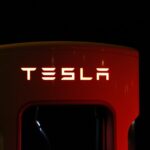If there is anyplace Tesla should be thriving, it’s Norway. Electric vehicles account for more than 90 percent of new car sales in the Scandinavian country, and buyers here are among the most sophisticated in the world when it comes to understanding the nuances of batteries, charging and range.
So it hardly bodes well for Tesla that its sales in Norway, as measured by registrations, have declined more than 12 percent so far this year. Sales for the first three months of the year were even worse in Denmark, France, the Netherlands and Sweden.
In fact, Tesla’s sales have been on a steep downward trend around the world: The company said on Wednesday that its global sales in the first quarter fell 13 percent from a year earlier.
Tesla said that it delivered nearly 337,000 cars during the quarter. That is down from 387,000 in the first three months of 2024 and fewer than in any period since the second quarter of 2022.
The company’s tepid sales at a time when electric vehicle sales were rising around the world reflected a number of serious problems, not least a consumer backlash against the prominent role that Elon Musk, the chief executive of Tesla, is playing in the Trump administration.
Geir Rognlien Elgvin, an urban planner with the City of Oslo, bought his first Tesla in 2013, months after they were introduced in Norway. He has toured the company’s battery Gigafactory in Nevada. He met Mr. Musk when the executive was still mostly known for wanting to address climate change with electric cars and his rocket company, SpaceX.
But as Mr. Musk drifted to right-wing politics, Mr. Elgvin’s enthusiasm waned. And he grew concerned about the company’s data security policy.
Several months ago, he swapped his Tesla for a battery-powered cargo bike and a shared electric Volkswagen. “I would never drive a Tesla again,” he said. “It’s a question of ethics.”
Last year, Tesla accounted for nearly a quarter of car sales in Norway, far more than any other carmaker. But in the first two months of this year Tesla slipped to third place behind Volkswagen and Toyota. Teslas made up just 9 percent of new cars sold, less than half of its market share a year earlier.
For Tesla, the decline in the world’s most advanced electric vehicle market is ominous, signaling problems to come elsewhere. “Norway is always a good place to look into the future,” said Will Roberts, who follows electric vehicles at Rho Motion, a research firm.
There are several explanations for Tesla’s sales decline. The company depends on two models, the Model Y sport utility vehicle and the Model 3 sedan, for almost all of its sales. The Cybertruck pickup, Tesla’s newest and most polarizing model, has been plagued by recalls and has not sold as well as Mr. Musk predicted it would.
Tesla once set the standard for battery range, software and driver-assistance technology. But traditional carmakers have become more adept at building electric vehicles and have begun to catch up to Tesla in technology. Competitors like Volkswagen, Volvo and BMW — and, outside the United States, BYD, Xpeng and other Chinese manufacturers — offer a diverse selection of luxury sedans, minivans, pickups and compact cars.
“Tesla pretty much all of these years has been alone in Europe and the U.S.,” said Felipe Munoz, global analyst at JATO Dynamics, a research firm. “That’s not the case anymore.”
Some of the sales decline could be due to buyers who are waiting for an upgraded version of the Model Y, analysts said. Deliveries of that version began in March in Norway, which perhaps explains why the company’s sales last month were down only 1 percent from March 2024.
But Mr. Munoz pointed out that sales of the Model 3, which was updated in 2023, have also fallen, though not as much.
In February, registrations in Europe of the older Model Y fell 56 percent, while registrations of the Model 3 fell 14 percent, according to JATO. The declines occurred even though overall sales of electric vehicles in Europe jumped 25 percent.
Mr. Musk’s support for right-wing parties in Europe and his role as President Trump’s cost-cutter in chief have not helped Tesla’s image. He has been the focus of protests around the United States and Europe, and his activities have alienated some customers. In most countries, buyers of electric vehicles lean left politically.
“I hate Musk, I hate Trump, I hate this entire company,” said Kao Leu, a 75-year-old resident of New York’s Harlem neighborhood who was protesting outside a Manhattan Tesla dealership last week.
In Sweden, the country’s largest insurer, Folksam, said Wednesday that it had sold its stake in the U.S. automaker because Tesla’s approach to employee rights violated the company’s investment criteria. Folksam had been invested in Tesla since 2013 and its stake was worth 1.6 billion Swedish krona, or $160 million.
Mechanics with the union IF Metall have been on strike in Sweden for more than a year, over Tesla’s refusal to sign a collective agreement.
More than anger, many Norwegians feel ashamed for supporting a company that they see as reneging on its commitment to making personal transportation better for the planet and whose chief executive they say has abandoned the principles of democracy.
Andrea Fresk’s Tesla is caked with a thick layer of late-winter grime, a state of neglect she said reflected her ambivalence toward the vehicle that she and her husband took out a 10-year loan to buy in 2019.
After Mr. Musk bought the social media company Twitter, she began feeling increasingly ashamed about owning the Tesla, but it got worse after Mr. Musk became a regular presence in the Trump administration.
“Then it became really hard to defend having this car,” said Ms. Fresk, a psychologist with Norway’s public family services.
Some of her friends have already sold their Teslas, she said. But because she and her husband are still paying off the car and it runs smoothly, she is not replacing it for now.
Rebil, Norway’s largest used-car dealer, has seen an increase in the number of drivers selling their Teslas in recent months. But that means prices are low, and despite “Tesla Shame,” sales have been brisk.
“I’ve had a lot of customers concerned about Tesla,” said William Oestby, a salesman with Rebil. But when he quizzes them on price, range, size and the hauling capability they are seeking, he said, Tesla is usually the best deal on offer. “It’s hard to find something that compares,” he said.
That may soon change. Over the next two years, Ford Motor, BMW, Mercedes-Benz and other automakers will introduce their next generation of electric vehicles. These cars, some which will be on sale before the end of this year, will incorporate advances in battery technology that allow greater driving range and faster charging. These automakers say their cars will be better than what Tesla is offering.
The traditional automakers “have all made a lot of strides forward,” Mr. Roberts of Rho Motion said. “Previously consumers might have struggled to find other options than
Tesla that really competed. That’s now not the case.”
Anusha Bayya contributed reporting from New York, and Henrik Pryser Libell from Oslo.
#Elon #Musk #Backlash #Turns #Global #Sales #Slump #Tesla


